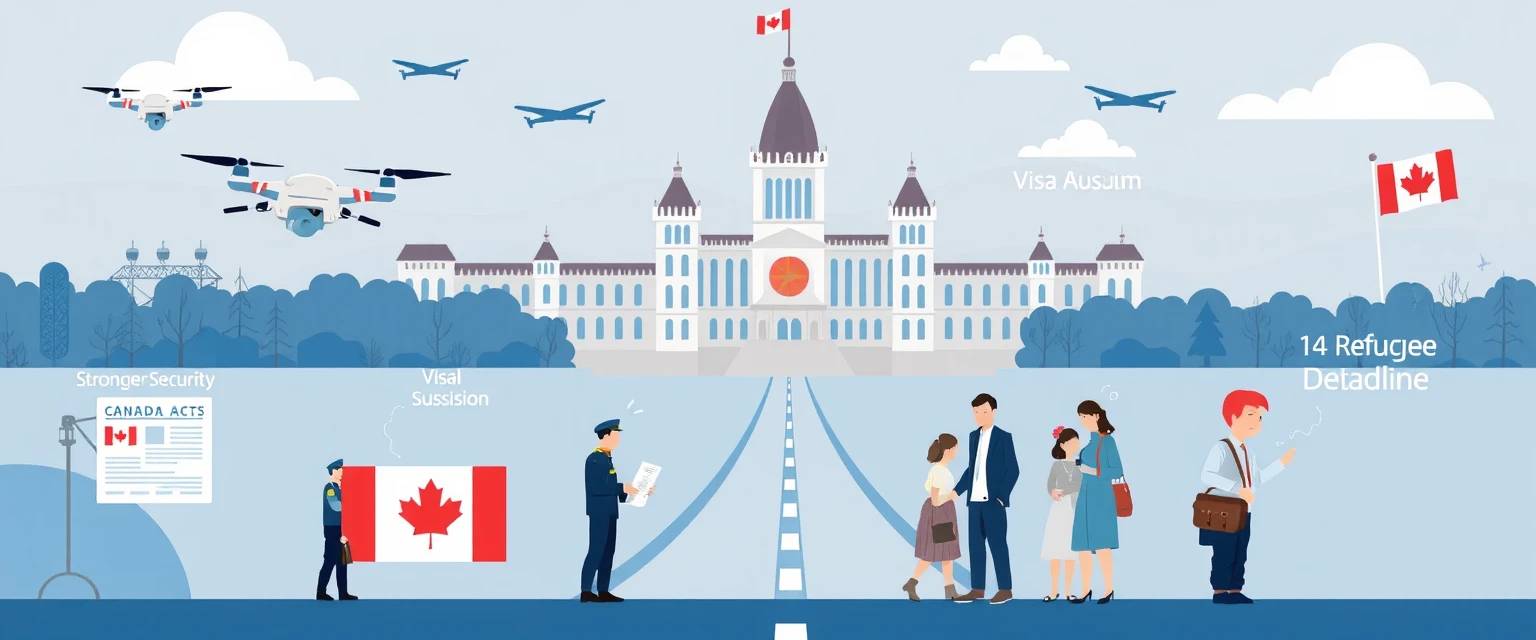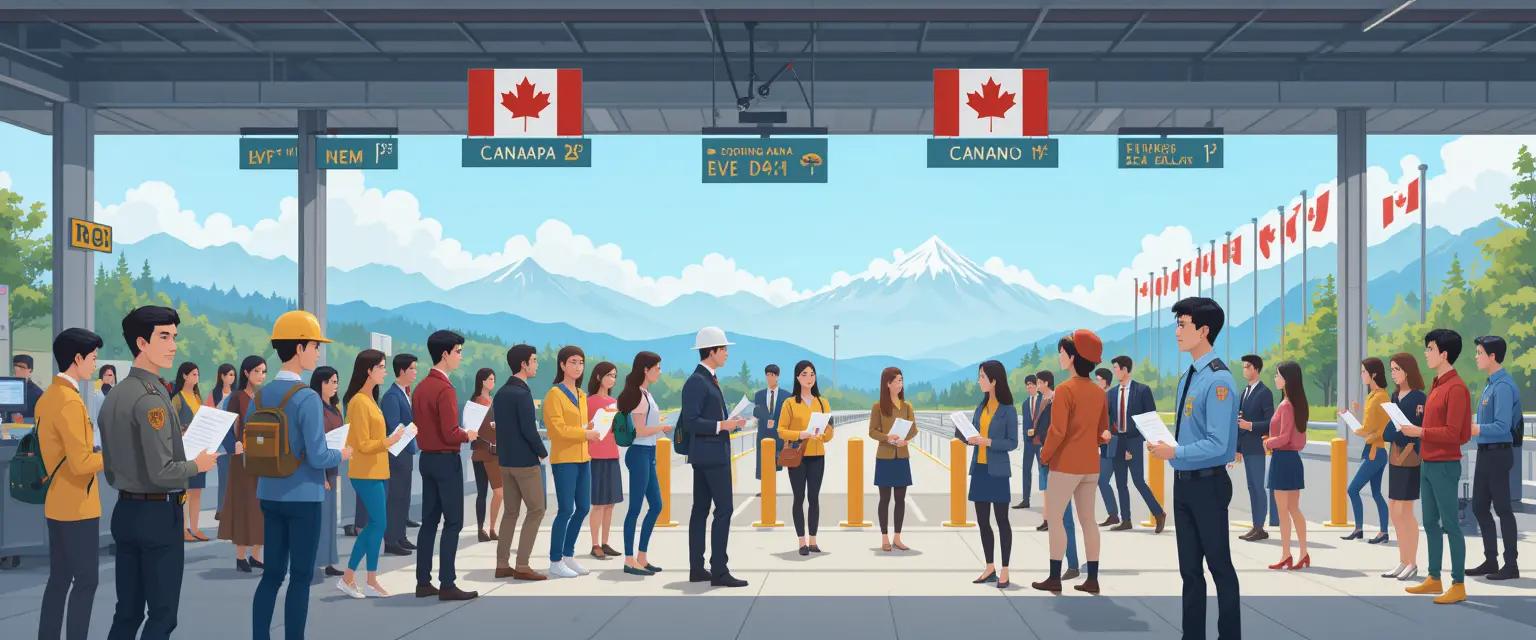Canadian Spousal Sponsorship: How to Reunite with Your Partner in Canada
Building a life together is important, but immigration barriers can make it challenging for couples separated by borders. If you’re a Canadian citizen or permanent resident looking to sponsor your spouse, you might be wondering:
- Do I meet the eligibility criteria?
- How long will it take?
- What documents do I need?
- What if my application is rejected?
Many couples face delays due to missing paperwork or misunderstandings about eligibility. With strict rules in place, a simple mistake can set your plans back by months. That’s why seeking guidance from an immigration consultant in Canada can be a game-changer in making the process smoother and stress-free.
Submit the Assessment Form to Discover your Eligibility
Common Reasons for Spousal Sponsorship Delays or Rejections
Consider Raj and Priya, a couple navigating Canada’s spousal sponsorship process. Raj, a Canadian citizen, applied to sponsor Priya, who lived in India. Despite submitting the necessary documents, their application faced a year-long delay because they didn’t provide enough proof of their relationship.
Similarly, Lisa and Mark, another couple, had their application rejected because they misunderstood the financial requirements. Unfortunately, these cases aren’t rare. Missing relationship proof, incomplete paperwork, and financial ineligibility are some of the most common reasons why sponsorship applications are delayed or denied. But with careful planning and professional help from an immigration consultant in Mississauga, you can avoid these roadblocks.
Who Can Sponsor Their Spouse?
To qualify as a sponsor, you must:
- Be at least 18 years old.
- Be a Canadian citizen or permanent resident.
- Prove that you can financially support your spouse.
- Not be receiving social assistance (except for disability support).
If you’re a permanent resident, you must live in Canada while sponsoring your spouse. However, Canadian citizens living abroad can apply if they plan to return to Canada once their spouse’s PR is approved.
For the latest updates on sponsorship requirements, visit the IRCC official website.
What Type of Relationship Qualifies?
Canada recognizes three types of relationships for spousal sponsorship:
- Spouse: You are legally married.
- Common-law Partner: You have lived together for at least 12 consecutive months.
- Conjugal Partner: You have been in a committed relationship for 12+ months but cannot live together due to reasons beyond your control (e.g., immigration laws, cultural restrictions).
A strong application includes photos, financial documents, travel history, and communication records to prove that your relationship is genuine. If you’re unsure what to include, an immigration consultant in Toronto can help you build a solid case.
Should You Apply for Inland or Outland Sponsorship?
Understanding the right sponsorship pathway is crucial:
- Inland Sponsorship: If your spouse is already in Canada on a valid visa, they can apply for an Open Work Permit while their sponsorship is processed.
- Outland Sponsorship: If your spouse is living outside Canada, they must wait for PR approval before relocating. This option allows appeals if the application is refused.
How to Apply for Spousal Sponsorship
1. Collect Your Documents
Your application must include:
- Sponsorship forms (IMM 1344, IMM 5532, etc.).
- Relationship proof (photos, bank statements, travel history, chat logs).
- Identity documents (passports, marriage certificates, etc.).
- Police clearance and medical exam reports.
- Financial documents proving you can support your spouse.
Even a minor mistake can cause delays, so double-check everything or consult an immigration consultant in Brampton for expert review.
2. Submit Your Application & Wait for Processing
Processing times vary based on location:
- Spouses inside Canada: 12-15 months
- Spouses outside Canada: 10-14 months
- Quebec applicants: 34-36 months
If IRCC has concerns about your application, they may request additional documents or schedule an interview. Providing strong evidence can reduce the chances of extra scrutiny.
3. Financial Responsibilities of a Sponsor
When your spouse becomes a permanent resident, you must support them financially for three years, even if your relationship ends. Before applying, make sure you’re financially prepared for this commitment.
4. Avoid These Mistakes That Can Delay Your Application
Some common errors that lead to delays or rejections include:
- Not enough relationship proof (lack of joint documents, few photos, etc.).
- Incomplete or incorrect forms.
- Not meeting financial requirements.
- Criminal or medical inadmissibility issues.
To prevent delays, refer to Canada’s immigration guide for detailed instructions.
What Happens in a Spousal Sponsorship Interview?
If IRCC has doubts about your relationship, they may request an interview. Expect questions like:
- How did you meet your spouse?
- What are their daily habits?
- How do you stay in touch?
- Have you met each other’s family?
Giving honest, consistent answers and backing them up with documentation will help ensure a successful outcome.
Why Work with an Immigration Consultant?
The spousal sponsorship process can be complicated, with ever-changing policies and detailed paperwork. Working with an experienced spousal sponsorship immigration consultant in Canada can make a significant difference.
At Sayal Immigration, we help couples reunite by:
✔ Evaluating your eligibility.
✔ Ensuring all paperwork is complete and accurate.
✔ Guiding you through the interview process.
✔ Keeping track of your application status.
If you’re looking for expert advice from an immigration consultant in Mississauga, our team is here to help.
Take Action Now!
Time is precious when you’re waiting to be with your loved one. A small mistake can cost months of delay.
Contact Sayal Immigration today and start your sponsorship journey with confidence!
Book an Appointment with Sahil for any Immigration related Queries
📞 Call us now or 📩 Book a consultation online!









